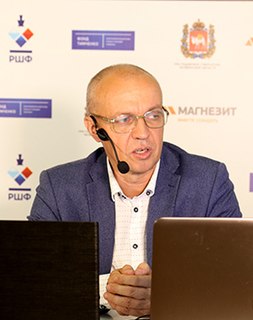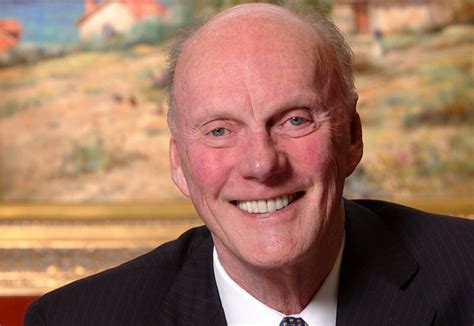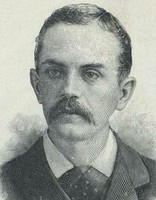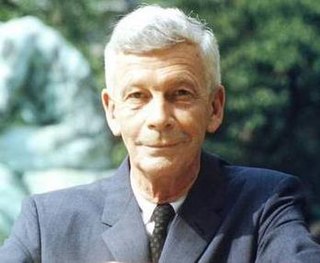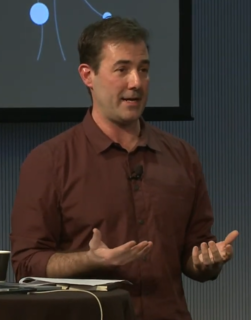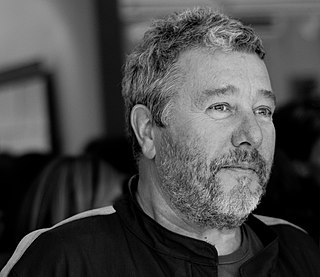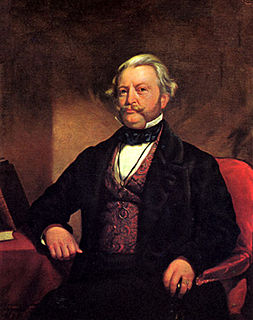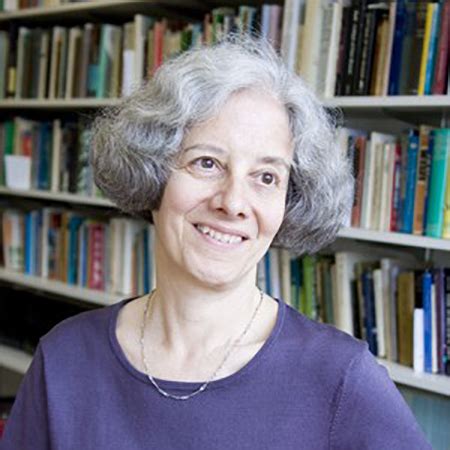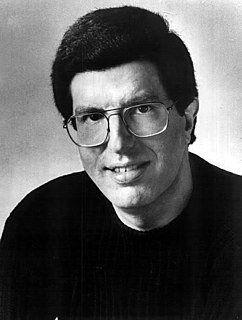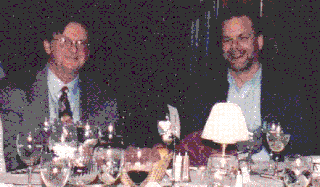Top 1200 Certain Knowledge Quotes & Sayings - Page 13
Explore popular Certain Knowledge quotes.
Last updated on April 22, 2025.
I address these hopes to all young players. It seems to me that they often begin too early the strict life of a professional, without first completing their chess studies. Deficiencies in education and a lack of certain basic knowledge will tell sooner or later; they will bump their head on the ceiling and will no longer be able to climb up to the stars.
I had a foretaste of another, larger kind of knowledge: one I believe human beings will be able to access in ever larger numbers in the future. But conveying that knowledge now is rather like a chimpanzee, becoming a human for a single day to experience all of the wonders of human knowledge, and then returning to one's chimp friends and trying to tell them what it was like knowing several different Romance languages, the calculus, and the immense scale of the universe.
The first thing the reasonable man must do is to be content with a very little knowledge and a very great deal of ignorance. The second thing he must do is to make the utmost possible use of the knowledge he has and not waste his energy crying for the moon. The third thing he must do is try and see clearly where his knowledge ends and his ignorance begins.
Real artists find answers. The knowledge of the artisan is within the confines of his skills. For example, I know a lot about lenses, about the editing room. I know what the different buttons on the camera are for. I know more or less how to use a microphone. I know all that, but that's not real knowledge. Real knowledge is knowing how to live, why we live, things like that.
I have certain rules that I've established for myself that took a while post-day job to figure out. Everyone says people who freelance or are writers struggle with the structure of it. I'm not allowed to check email before a certain hour. I'm not allowed to run errands during the day. I have to write a certain amount every day.
People are born in a certain place, and in a certain society. I don't mean to sound like a determinist, but to think we're entirely free to do whatever we want betrays a certain class perspective. For most people who have to work for a living, and work at jobs under conditions they may not like, it's just not simple when it comes to freedom.
The end of man is knowledge, but there is one thing he can't know. He can't know whether knowledge will save him or kill him. He will be killed, all right, but he can't know whether he is killed because of the knowledge which he has got or because of the knowledge which he hasn't got and which if he had it, would save him.
Faith is a living, daring confidence in God's grace, so sure and certain that a man would stake his life on it one thousand times. This confidence in God's grace and knowledge of it makes men glad and bold and happy in dealing with God and with all creatures; and this is the work of the Holy Ghost in faith.
I suppose I was lucky enough to be educated at a time when teachers still thought children could handle knowledge. They trusted us. Then there came a time when they decided that because not every kid in the class could understand or remember those things they wouldn't teach them anymore because it wasn't fair on the less good ones. So they withheld knowledge. Then I suppose the next lot of teachers didn't have the knowledge to withhold.
The notion that "applied" knowledge is somehow less worthy than "pure" knowledge, was natural to a society in which all useful work was performed by slaves and serfs, and in which industry was controlled by the models set by custom rather than by intelligence. Science, or the highest knowing, was then identified with pure theorizing, apart from all application in the uses of life; and knowledge relating to useful arts suffered the stigma attaching to the classes who engaged in them.
These algorithms, which I'll call public relevance algorithms, are-by the very same mathematical procedures-producing and certifying knowledge. The algorithmic assessment of information, then, represents a particular knowledge logic, one built on specific presumptions about what knowledge is and how one should identify its most relevant components. That we are now turning to algorithms to identify what we need to know is as momentous as having relied on credentialed experts, the scientific method, common sense, or the word of God.
During the years 1945-1965 (I am referring to Europe), there was a certain way of thinking correctly, a certain style of politicaldiscourse, a certain ethics of the intellectual. One had to be on familiar terms with Marx, not let one's dreams stray too far from Freud.... These were therequirements that made the strange occupation of writing and speaking a measure of truth about oneself and one's time acceptable.
In our civilization, there are permanent forms which are part of every epoch and every culture. They are not especially difficult to detect. A minimal knowledge of physics, astrophysics, and perhaps mathematics, brings to light certain patterns that make these subjects easier to understand. It is striking to see the extreme similarity between these scientific propositions and the forms that recur in all times, places and civilizations.
I think we owe it to children to let them dig their knowledge, of whatever subject, for themselves out of the "fit" book; and this for two reasons: What a child digs for is his own possession; what is poured into his ear, like the idle song of a pleasant singer, floats out as lightly as it came in, and is rarely assimilated. I do not mean to say that the lecture and the oral lesson are without their uses; but these uses are, to give impulse and to order knowledge; and not to convey knowledge.
Religions have found that if you behave in a certain way, if you sort of perform certain rituals that expand your mind and make you realize that will make you realize and help you to seguey into transcendence and perform certain acts, adopt a certain lifestyle, you develop new capacities of mind and heart, just like the dancer, or the athlete that make you into a whole human being and principle after one of these disciplines right across the board in all of the faiths is compassion, the ability to feel with the other person.
First therefore let us seek the dignity of knowledge in the archetype or first platform, which is in the attributes and acts of God, as far as they are revealed to man and may be observed with sobriety; wherein we may not seek it by the name of Learning; for all Learning is Knowledge acquired, and all Knowledge in God is original: and therefore we must look for it by another name, that of Wisdom or Sapience, as the Scriptures call it.
We certainly have to have a view about knowledge in order to decide whether some version of foreknowledge is necessary for inquiry or whether some philosopher or other thinks it is. Roughly, the more demanding our conception of knowledge is, the less plausible foreknowledge is; the weaker our conception of knowledge is, the more plausible foreknowledge is.
A knowledge of history as detailed as possible is essential if we are to comprehend the present and be prepared for the future. Fate...is not the blind superstition or helplessness that waits stupidly for what may happen. Fate is unalterable only in the sense that given a cause, a certain result must follow, but no cause is inevitable in itself, and man can shape his world if he does not resign himself to ignorance.
During the last century, and part of the one before, it was widely held that there was an unreconcilable conflict between knowledge and belief. The opinion prevailed amoung advanced minds that it was time that belief should be replaced increasingly by knowledge; belief that did not itself rest on knowledge was superstition, and as such had to be opposed. According to this conception, the sole function of education was to open the way to thinking and knowing, and the school, as the outstanding organ for the people's education, must serve that end exclusively.
WISDOM IS dependent upon knowledge. Where there is complete ignorance there can be no wisdom, no knowledge of the right thing to do. Man’s knowledge is comparatively limited and so his wisdom must be small, unless he can connect his mind with a knowledge greater than his own and draw from it, by inspiration, the wisdom that his own limitations deny him. Only God knows all truth; therefore only God can have Real wisdom or know the right thing to do at all times, and man can receive wisdom from God. Wisdom is obtained by reading the mind of God.
I try to follow certain rules. Nothing in Élysée Palace should become habitual, because routine lends one a deceptive feeling of security. You begin not noticing certain things and lose your focus on what's important. Uncertainty and change keep you attentive. This place and, to a certain extent, my office, help me avoid developing habits.
For many ages it has been allowed by sensible men, Nihil est in intellectu quod non fuit prius in sensu: That is, There is nothing in the understanding which was not first perceived by some of the senses. All the knowledge which we naturally have is originally derived from our senses. And therefore those who want any sense cannot have the least knowledge or idea of the objects of that sense; as they that never had sight have not the least knowledge or conception of light or colours.
I don't think they understand it's as important as math and science. It rounds you out as a person. I think it gives you a love of certain things. You don't have to become the next great composer. It's just nice to have heard certain things or to have seen certain things. It's part of being a human being.
